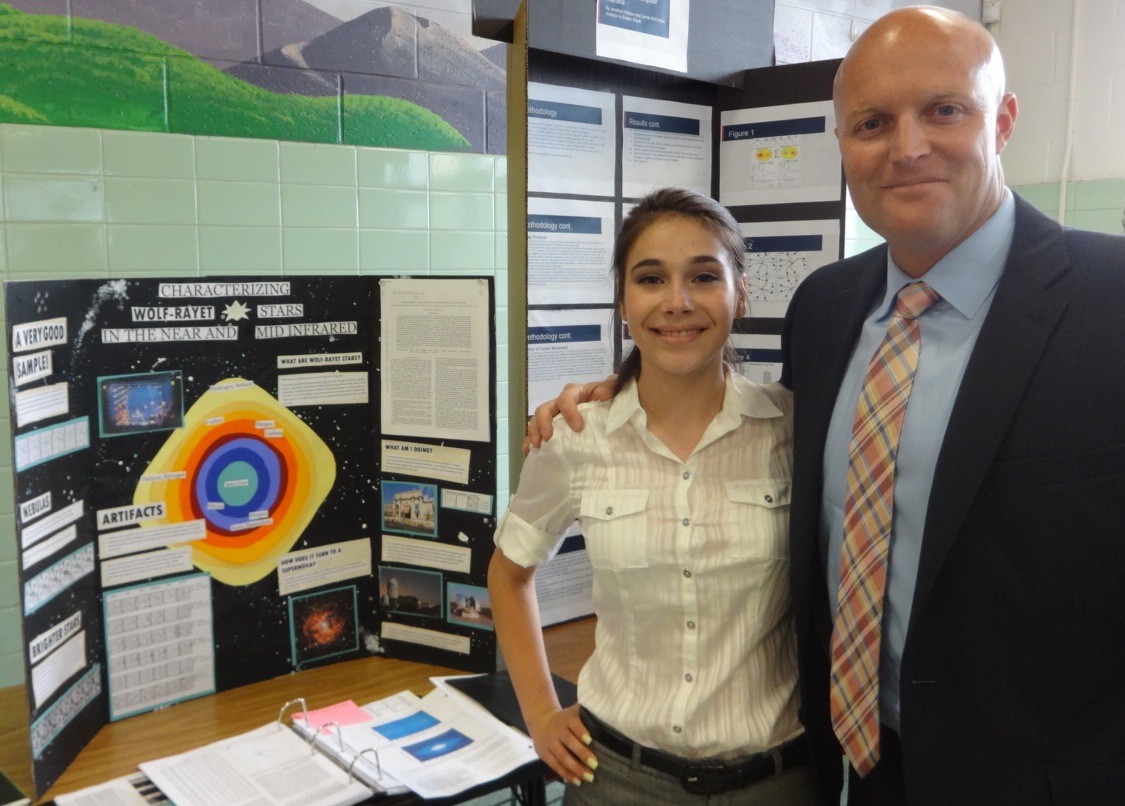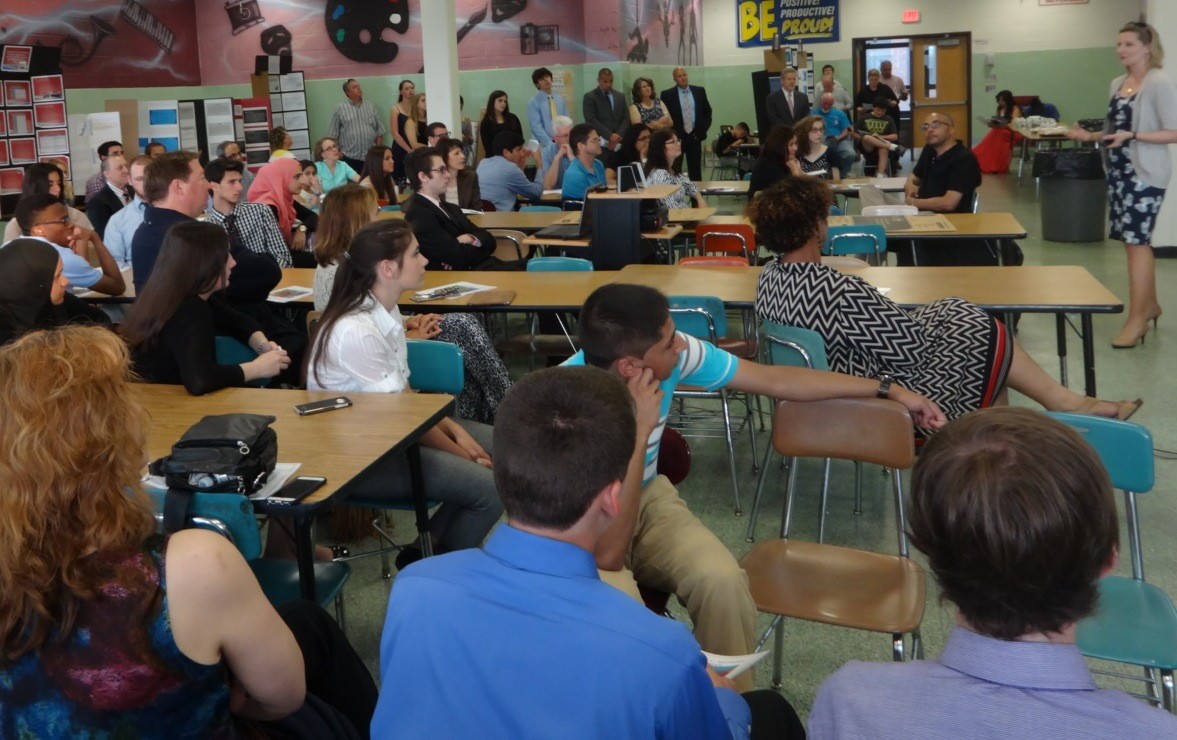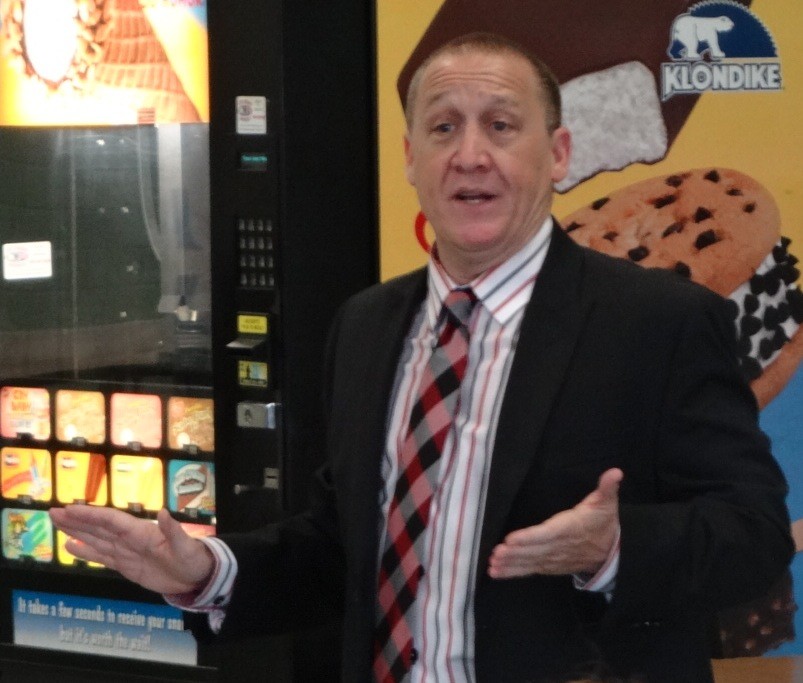Mepham showcases students’ research
Students in Mepham High School’s three-year Authentic Science Research program worked for months, and in some cases years, on their projects for this year’s Research Symposium on May 28.
Among the projects was one by senior Jonathan Spiegel, whose work is pending publication in the Journal of Neurobiology of Aging. Spiegel presented his research on diagnosing Alzheimer’s disease before irreversible neurological damage is done.
Eleventh-grader Emily Shipley also studied the brain. Her project analyzed the relationship between mental strength and athletic performance by giving dancers a choreographed dance with and without cues and reviewing how they performed. Those with assisted cues performed the routine better, according to Shipley’s research.
Junior Brianna Isola’s project reached for the sky, as it looked into the final stages of a dying star. She is currently working at the Hayden Planetarium at the Museum of Natural History with a team and is an author on a paper on these findings.
Keynote Speaker Veronica Dolar, Ph.D., a C.W. Post. economics professor, discussed the rigorous process of performing research and offered advice to the students. “Expect that things are going to fail and that you will be rejected,” she said. She stressed that failure shouldn’t stop students from picking up and trying again. Dolar also spoke about the importance of finding a good mentor.
Dr. David Kommor, Mepham’s science research adviser, brimmed with pride as he discussed the featured students, who will earn college credit upon completion of the research course. “Their research has been completed solo, in hospitals, universities and more,” he said. “This evening is the culmination of the research year.”
The Bellmore-Merrick Central High School District’s Authentic Science Research Program is also found at Calhoun and Kennedy high schools. It begins for all Honors students with an Introduction to Research class in ninth grade. From there, students who are interested in continuing science research can apply to the ASR program, which begins in 10th grade and lasts through senior year.

 50.0°,
Overcast
50.0°,
Overcast 









